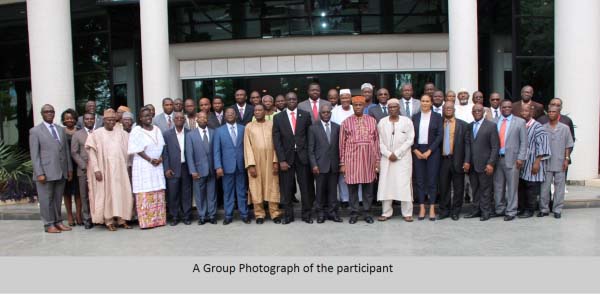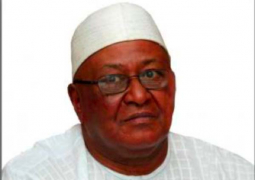
Ministers
in Charge of meteorology have called for greater responsiveness to
environmental issues.
At
the opening of their meeting at the ECOWAS Commission on 5 August 2016, the
ministers lauded all the ECOWAS initiatives geared towards ensuring a better
understanding of the devastating effects of climate change on the livelihood of
citizens and on the economies of West African countries.
The
ministers are to adopt the report of the experts after the 12th meeting of the
Committee of Directors of National Meteorological Services, which ended on the
4th of August.
Addressing
delegates at the meeting, ECOWAS Commissioner for Agriculture, Environment and
Water Resources, Tchambakou Ayassor, highlighted the far reaching effects of
climate changes on the region and beyond
Climate
change, he maintained, affects the whole world and more especially the West
African sub-region.
He
noted that weather forecasts suggest that the increase in average temperature
in the projected period 1980 to 2080 will range between 3 and 4 Celsius and
cover the entire continent envisaged to be 1.5 times higher than the global
level.
The
Minister of Transport of Nigeria, Rt. Hon. Chibuike Rotimi Amaechi, recalled
that the reports of the implementation of the United Nations Millennium
Development Goals (MDGs) concluded in 2015 showed that the increasing frequency
and intensity of extreme weather events constituted a significant challenge to
attaining some of the goals in Africa.
He
went further to state that in the West African region, the poor performance in
some aspects of the MDGs could, to a large extent, be attributed to the
frequent occurrence of droughts, floods, violent storms, soil erosion and other
severe weather phenomena.
He
further stressed that extreme weather events have negative impact on
agriculture, water resources, power generation and transmission, health, roads,
rail lines and other physical infrastructure, adding that these are critical
sectors for the national and regional economic development.
The
minister pointed out that extreme weather events retard the pace of
development, and could even obliterate developmental achievements already
recorded making it important for our national development to be
climate-resilient.
The
secretary general of the World Meteorological Organisation (WMO) through his
representative Bernard Edward Gomez, the WMO Representative for North, Central
and West Africa, said that despite the challenges associated with the inability
of most states to meet the requirements for the quality management system and
competency assessment for the provision of meteorological services, the ECOWAS
region has already taken the right steps to proffer holistic approach to
climate change challenge.
He
noted further that with the support of ministers in charge of meteorology,
development partners and stakeholders, the implementation of the programme on
climate change will significantly strengthen the resilience of populations and
empower them to harness the favourable climate outcomes for sustainable
development.
Read Other Articles In Article (Archive)



